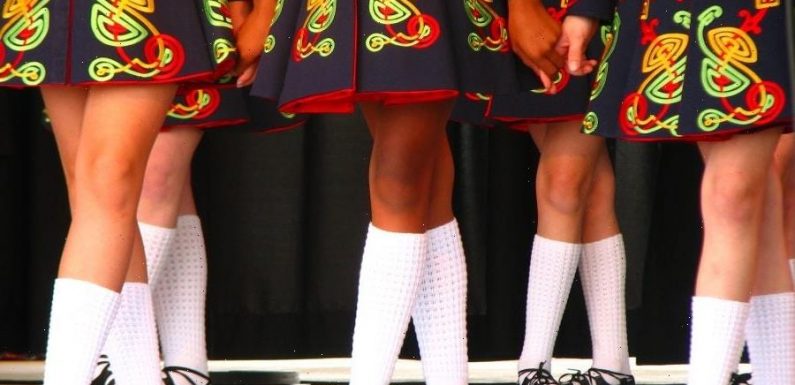
When you think about Irish dancing, a certain picture usually comes to mind, but 15-year-old Imani Johnson, a Black Irish Dancer, is aiming to disabuse those notions. The Atlanta native “is one of the best Irish dancers in the country” racking up a host of accolades and awards, including placing “second in her age group at the U.S. nationals in 2021 [and] w[inning] her group in the Southern regionals in 2018 and 2019.”
Johnson has come a long way from her kindergarten days of imitating dancers on YouTube. When Johnson first started out, she was one of the few Black competitors in Irish dance, and “it was a bit challenging at first. ‘I would want to see someone like me, so I could have someone to relate to,’…But as she got more involved in the scene, she found a few other dancers of color who shared her passion.”
Lisa Petri, owner of Long Island Irish dance school and president of the Irish Dance Teachers Association of North America, can attest, people have been calling her studio since it opened in 1991 to “ask, ‘Do you have to be Irish to do Irish dancing?’…There are now Irish dance schools from China to Mexico.”
Diversity within Irish dance has been steadily increasing since the sport’s inception. Almost a decade ago, NPR wrote an article, “Today’s Irish Dancers Step Away From Stereotype” and discussed how “[w]hen Riverdance debuted 20 years ago, Irish step dancers — whether citizens of Ireland or any other country — looked, well, stereotypically Irish. The red-haired, freckle-faced lass doing a jumpy jig still comes to mind for many. But…that image no longer reflects the reality.”
Over the years, Irish dancers of color have been “making a name for themselves in the sport – Julia O’Rourke, who is half-Filipino and half-Irish, has won four Irish dance world championships.” Joel Hanna, also of Filipino descent, “started Irish dancing in the mid-1980s…excell[ing] as a competitor in the world’s largest the world’s largest Irish dance organization An Coimisiún le Rincí Gaelacha (CLRG),” and half Japanese, Tokiko Masuda, also competed at the World Irish Dancing Championships alongside Hanna.
Predictably, all are not “as accepting of the new stars. When Morgan Bullock, a Black Irish dancer from Virginia, went viral on TikTok in 2020 for her dance video choreographed to Megan Thee Stallion and Beyonce’s ‘Savage’ remix, some commenters accused her of cultural appropriation. The then-20-year-old college student shot back by describing her years of dedication and practice.”
#irishdance #fyp #keepingactive #spacethings #foryou
Johnson considers Bullock to be one of her role models, especially after Bullock “became the first Black female dancer in ‘Riverdance,’” and Johnson hopes to continue blazing the trail behind Bullock and inspire future generations to follow in their footsteps. She recalls how she’s been approached by people who’ve told her, “You motivate me to keep dancing because it reminds me that there are people who look like me.”
Dearbhla Lennon, “public relations officer and sanctioned competition adjudicator” for CLRG said it best, “But once they start dancing, you immediately look to their feet. Feet are feet. It has absolutely zero to do with [the] color of those feet.” According to founder of Trinity Irish Dance Company, Mark Howard, “Irish dance belongs to everyone.”
Source: Read Full Article